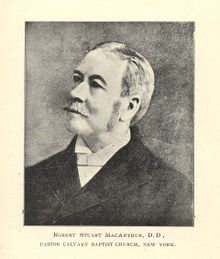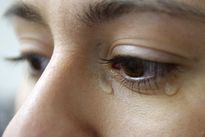Atheists And Psychological Factors Related To Mass Shooters
 From Conservapedia
From Conservapedia .jpg)
The atheist PZ Myers, quoting fellow leftist Alex Nichols, said that jibes associating outspoken atheists with neckbeards (among other things) caused many liberals/leftists to leave the atheist tent and those who remained for the most part lacked in social skills and self-awareness.[1] See also: Atheism and social skills
The FBI has performed some preliminary research on the psychology of mass shooters: FBI on psychology of mass shooters and FBI Study Identifies Warning Signs Of Future Mass Shooters.
There have been a significant amount of atheists who have been mass shooters (see: List of atheist shooters and serial killers).
Mass shooters often have these characteristics:
1. Frequently are sociopaths or have psychopathic tendencies (see: Atheism and sociopathy and Atheism and psychopathy).[2]
2. Most mass shooters are men. Of the 62 cases of American mass shooters from 1982-2012, one of them was a woman.[3] The majority of atheists are men (see: Atheism and women).
3. Tend to be proud, narcissists who crave attention (see: Atheism and arrogance and Atheism and narcissism).[4][5]
4. Many are loners (see: Atheism and loneliness and Atheism and social outcasts and Atheism and social/interpersonal intelligence and Atheism and marriage).[6]
5. Many have interpersonal conflicts with family, friends, and colleagues at work or school (see: Atheism and social/interpersonal intelligence and Atheist factions)[7]
6. Often have substance abuse problems (See: Atheism and alcoholism and Atheism and drug addiction).[8]
7. Most mass shooters have mental illness (see: Atheism and mental illness).[9]
8. Often kill themselves or engage in "death by cop" (see: Atheism and suicide).[10]
9. Frequently tend to kill out of revenge/bitterness/unforgiveness/anger (see: Atheism and bitterness and Atheism and unforgiveness and Atheism and anger and Atheism and love).[11][12]
10. Often have poor emotional control (see: Atheism and negative emotions/thoughts).
11. Frequently are very unhappy people (see: Atheism and happiness and Atheism and depression).[13]
12. Many mass shooters are disgruntled people with a sense of entitlement (see: Atheism and gratitude and Atheism and envy).[14][15]
13. Most come from fatherless homes (see: Atheism and illegitimate births and Atheism and divorce and Atheism and poor relationships with parents and Psychology of atheism).[16]
14. Mass shooters often see violence as the only answer (see: Atheism and violence and Irreligion and domestic violence and Atheism and mass murder and Atheist atrocities and Atheism and human rights violations).[17]
15. According to Business Insider: "According to the nonprofit Everytown for Gun Safety, the majority of mass shootings in the US are in some way related to domestic or family violence. A 2018 Everytown report indicates that in at least 54% of mass shootings, the perpetrator also shot a current or former intimate partner or family member." (see: Irreligion and domestic violence).[18]
16. A little over third of the adult mass shooters had prior criminal convictions (see: Irreligious prison population and Religion and crime reduction).[19]
17. Often have health concerns which acts as a stressor in their lives (see: Atheism and health and Irreligion and recovery from illnesses and Atheism and life expectancy)[20]
18. Many are active on the internet and frequently it is found that they have posted disturbing things on social media and/or other websites (see: Internet atheism).
A study entitled Mass Shootings and Media Contagion Theory: Social Media’s Influence on Frequency of Incidents published by Kristina J. Lee at Elon University indicates:
| “ | This study suggests that there is a pattern between the spread of mass shooting news on social media platforms and the increase in these crimes. Over time, as social media has increased in usage, so has the coverage of news concerning mass shootings. This also further reflects shooters’ desire for fame and their tendency to copy a crime.
Evidence from this study reveals a large increase in the number of mass shootings after 2011’s social media milestones, and one can conclude that social media most likely has some effect on these crimes, although the degree of this relationship is beyond the scope of this study.[21] |
” |
Contents
Mass shooters, atheists and mental illness[edit]
See also: Atheism and mental illness

As mentioned above, most mass shooters have mental illness (see: Atheism and mental illness).[23]
Global News reported:
| “ | Children who are raised with religious or spiritual beliefs tend to have better mental health into their adulthood, a new study from the Harvard T.H. Chan School of Public Health found.
According to the study’s findings, people who attended weekly religious services or prayed or meditated daily in their childhood reported greater life satisfaction in their 20s. People who grew up in a religious household also reported fewer symptoms of depression and lower rates of post-traumatic stress disorder.[24] |
” |
The prestigious Mayo Clinic found that that religious involvement and spirituality are associated with better physical health, mental health, health-related quality of life and other health outcomes.[22]
Atheism and depression[edit]
See also: Atheism and depression
Concerning atheism and depression, a University of Michigan study involving 19,775 individuals found that religious people are less likely than atheists to suffer depression when they are lonely.[26] See also: Atheism and suicide
The Telegraph reported: "Patients with a strong “intrinsic faith” (a deep personal belief, not just a social inclination to go to a place of worship) recover 70 per cent faster from depression than those who are not deeply religious."[27]
In addition, in many atheistic cultures in the developed world, there are considerable problems with loneliness (see: Atheism and loneliness). Furthermore, many atheists feel isolated within theistic cultures (see: Atheism and social outcasts).
In December 2003, the University of Warwick reported:
| “ | Dr. Stephen Joseph, from the University of Warwick, said: "Religious people seem to have a greater purpose in life, which is why they are happier. Looking at the research evidence, it seems that those who celebrate the Christian meaning of Christmas are on the whole likely to be happier.[28] | ” |
See also: Atheism and happiness and Atheism and Christmas
Atheism and suicide[edit]
See also: Atheism and suicide

The website Adherents.com reported concerning atheism and suicide:
| “ | Pitzer College sociologist Phil Zuckerman compiled country-by-country survey, polling and census numbers relating to atheism, agnosticism, disbelief in God and people who state they are non-religious or have no religious preference. These data were published in the chapter titled "Atheism: Contemporary Rates and Patterns" in The Cambridge Companion to Atheism, ed. by Michael Martin, Cambridge University Press: Cambridge, UK (2005). In examining various indicators of societal health, Zuckerman concludes about suicide:
"Concerning suicide rates, this is the one indicator of societal health in which religious nations fare much better than secular nations. According to the 2003 World Health Organization's report on international male suicides rates (which compared 100 countries), of the top ten nations with the highest male suicide rates, all but one (Sri Lanka) are strongly irreligious nations with high levels of atheism. It is interesting to note, however, that of the top remaining nine nations leading the world in male suicide rates, all are former Soviet/Communist nations, such as Belarus, Ukraine, and Latvia. Of the bottom ten nations with the lowest male suicide rates, all are highly religious nations with statistically insignificant levels of organic atheism."[32] |
” |
Concerning atheism and depression, a University of Michigan study involving 19,775 individuals found that religious people are less likely than atheists to suffer depression when they are lonely.[33]
Atheism and psychopathy[edit]
See also: Atheism and psychopathy
Mass shooters often have pyschopathic tendencies.[34]
A 2016 study relating to atheism and psychopathy published in Plus One indicates:
| “ | Similarly, a survey of 312 college students examining the relationship between Religious/Spiritual Well-Being (RSWB) and ‘dark triad’ personality traits found that “RSWB was confirmed to be negatively correlated with these negative aspects of personality, in particular with subclinical psychopathy.”
...moral concern is associated with a spiritual worldview.[35] |
” |
According to the 2014 journal article Correlates of psychopathic personality traits in everyday life: results from a large community survey published in the journal Frontiers of Psychology lack of belief in God is positively associated with psychopathic traits.[36]
Mass shooters and narcissism[edit]
See also: Atheism and narcissism and Atheism and arrogance

According to the FBI, in recent times, mass shooters who are narcissist are particularly prevalent.[38]
The Christian organization Got Questions Ministry declares about atheism and narcissism:
| “ | The very essence of all sin is self-determination. By denying the existence of a Creator, atheists can do whatever they please without concern for future judgment or eternal consequences (Matthew 12:36; Romans 14:12; 1 Peter 4:5; Hebrews 4:13). In the twenty-first century, self-worship has become culturally acceptable. Atheism appeals to a generation raised on evolutionary theory and moral relativism. John 3:19 says, “Light has come into the world, but people loved darkness instead of light because their deeds were evil.” If human beings are self-created, self-determined, and self-centered, then there is no moral law or lawgiver to whom they must submit. There are no absolutes and no one to whom they are ultimately accountable. By adopting such a mindset, atheists can focus on seeking pleasure in this life alone.
The attitude is nothing new, but the changing cultural norms are making it more openly acceptable. Romans 1:18–31 details the results of this rejection of God’s authority. Verse 28 says, “God gave them over to a depraved mind, so that they do what ought not to be done.” Our world is seeing the results of that depravity. What atheists call “enlightenment,” God calls foolishness. Verses 22–23 say, “Although they claimed to be wise, they became fools.” Since the “fear of the Lord is the beginning of wisdom” (Psalm 111:10; Proverbs 1:7; 9:10), then the denial of the Lord (atheism) is the beginning of foolishness.[39] |
” |
The abstract for the 2017 journal article The perception of atheists as narcissistic which was originally published in the journal Psychology of Religion and Spirituality indicates:
- "Research into prejudice toward atheists has generally focused on broad characteristics. Some of these characteristics (i.e., self-centeredness, elitism, individualism, and immorality) indicate a possible prejudice of narcissism. To investigate this specific prejudice, the present study used the Narcissistic Personality Inventory (Raskin & Terry, 1988), the Hypersensitive Narcissism Scale (Hendin & Cheek, 1997), and the Interpersonal Reactivity Index (Davis, 1983), which were adjusted so that the items of each measure were changed from first-person statements to third-person statements to measure participants’ perceptions. Participants (N = 359) were given a description of a fictitious individual named Alex, portrayed to them as either male or female and atheist or religious, or male or female with no additional information (creating 6 experimental groups), and then asked to complete the measures as they thought the individual would. Participants consistently rated atheists higher on narcissism measures and lower on empathy measures, indicating a perception of greater narcissism and a lack of empathy compared with religious individuals and controls. Participants’ perceptions of Alex were affected by his or her gender in conjunction with his or her religion, and the 2 variables of gender and religion interacted to create different patterns of perception. In general, interactions indicated differences in the way religion and gender impacted the perception of individuals as narcissistic, affecting perceptions of males more than females. The results are consistent with research findings that perceptions of atheists tend to be negative and prejudicial. This study highlights the need to compare perceptions with actual personality differences between atheists and religious individuals."[40]
Disgruntlement, anger, unforgiveness, atheists and mass shooters[edit]
The article FBI Study Identifies Warning Signs Of Future Mass Shooters indicates:
| “ | Over half of the mass shooters made some reference to another person that they intended to harm someone, and many appeared to have a pervasive, distorted belief that they needed to “make right” an instance where they were “wronged or treated unfairly,” the report read.
“The grievance itself may not have been reasonable or even grounded in reality, but it appeared to serve as the rationale for the eventual attack, giving a sense of purpose to the shooter,” according to the study. A “triggering event” related to the grievance – such as a job loss, romantic rejection, or an adverse legal ruling – often occurred “close in time” to the actual attack, the report read.[41] |
” |
As indicated above, mass shooters frequently tend to kill out of revenge/bitterness/unforgiveness/anger (see: Atheism and bitterness and Atheism and unforgiveness and Atheism and anger and Atheism and love).[42][43]
Also, as noted above, many mass shooters are disgruntled people with a sense of entitlement (see: Atheism and gratitude and Atheism and envy).[44][45]
Domestic violence, irreligion and mass shooters[edit]
See also: Irreligion and domestic violence
As indicated above, in at least 54% of mass shootings, the perpetrator also shot a current or former intimate partner or family member.[46]

The abstract for the 2007 article in the journal Violence Against Women entitled Race/Ethnicity, Religious Involvement, and Domestic Violence indicated:
| “ | The authors explored the relationship between religious involvement and intimate partner violence by analyzing data from the first wave of the National Survey of Families and Households. They found that: (a) religious involvement is correlated with reduced levels of domestic violence; (b) levels of domestic violence vary by race/ethnicity; (c) the effects of religious involvement on domestic violence vary by race/ethnicity; and (d) religious involvement, specifically church attendance, protects against domestic violence, and this protective effect is stronger for African American men and women and for Hispanic men, groups that, for a variety of reasons, experience elevated risk for this type of violence.[48] | ” |
Also, a quote from the journal article Race/Ethnicity, Religious Involvement, and Domestic Violence:
| “ | Another line of thought suggests that religious people may be less likely to perpe- trate domestic violence (Fergusson, Horwood, Kershaw, & Shannon, 1986). A 1999 study of U.S. couples found that both men and women who attend religious services regularly are less likely to commit acts of domestic violence than those who attend rarely or not at all (Ellison et al., 1999). A follow-up study identified three pathways through which religious involvement may operate; namely, increasing levels of social integration and social support, reducing the likelihood of alcohol or substance abuse, and decreasing the risk of psychological problems (Ellison & Anderson, 2001). However, even after considering such indirect effects of religion through the use of sta- tistical controls, that study found that regular religious involvement still had a protec- tive effect against the perpetration of domestic violence by both men and women (Ellison & Anderson, 2001). In addition, that study showed that evidence of such pro- tective religious effects persisted regardless of whether domestic violence was measured using data from self reports or partner reports, which makes it difficult to attribute these observed religious effects to simple social desirability or other response bias.[49] | ” |
The Journal of Family Issues also reported that religious belief diminishes the likelihood of domestic violence.[50]
See also[edit]
References[edit]
- ↑ Poisoning of a movement by PZ Myers
- ↑ Inside the mind of Nikolas Cruz and other mass school shooters, CNBC.com
- Serial Killers vs. Mass Murderers, CrimeMuseum.org
- ↑ A Guide to Mass Shootings in America, Mother Jones, 2019
- ↑ American Narcissism and Mass Shooters, Psychology Today
- ↑ FBI on psychology of mass shooters
- ↑ Serial Killers vs. Mass Murderers, CrimeMuseum.org
- ↑ FBI Study Identifies Warning Signs Of Future Mass Shooters
- ↑ FBI Study Identifies Warning Signs Of Future Mass Shooters
- ↑ Op-Ed: Actually, there is a clear link between mass shootings and mental illness by GRANT DUWE AND MICHAEL ROCQUE, Los Angeles Times, 2018
- ↑ FBI on psychology of mass shooters
- ↑ FBI Study Identifies Warning Signs Of Future Mass Shooters
- ↑ Anger, Rage and Pathological Embitterment: What Motivates Mass Murders? by Stephen A. Diamond Ph.D., Psychology Today
- ↑ Inside the mind of Nikolas Cruz and other mass school shooters, CNBC.com
- ↑ American Narcissism and Mass Shooters, Psychology Today
- ↑ Serial Killers vs. Mass Murderers, CrimeMuseum.org
- ↑ Shootings and Fatherlessness: A Clarification on the Data, Crisis Magazine
- ↑ 11 Shocking Common Traits Of Mass Shooters
- ↑ The men behind the US's deadliest mass shootings have domestic violence — not mental illness — in common, Business Insider
- ↑ FBI Study Identifies Warning Signs Of Future Mass Shooters
- ↑ FBI Study Identifies Warning Signs Of Future Mass Shooters
- ↑ Mass Shootings and Media Contagion Theory: Social Media’s Influence on Frequency of Incidents by Kristina J. Lee at Elon University
- ↑ 22.0 22.1 Mueller, Dr. Paul S. et al. (December 2001). "Religious involvement, spirituality, and medicine: implications for clinical practice". Mayo Clinic Proceedings vol. 76:12, pp. 1225-1235. Retrieved from Mayo Clinic Proceedings website on July 20, 2014.
- ↑ Op-Ed: Actually, there is a clear link between mass shootings and mental illness by GRANT DUWE AND MICHAEL ROCQUE, Los Angeles Times, 2018
- ↑ Religion can help improve children’s mental health, new study finds, Global News, 2018
- ↑ Adherents.com - suicide rates
- ↑ Lonely religious people are less depressed than atheists because they see God as a friend replacement, study finds, Daily Mail, 2018
- ↑ What God does to your brain by Julia Llewellyn Smith. The Telegraph, 20 Jun 2014
- ↑ http://www.scienceblog.com/community/older/2003/A/20037338.html
- ↑ http://www.adherents.com/misc/religion_suicide.html
- ↑ Religious Affiliation and Suicide Attempt, American Journal of Psychiatry
- ↑ NY Times, September 17, 1894, ATHEISM A CAUSE OF SUICIDE.; Dr. MacArthur Preaches on the Sin and Cowardice of Self-Destruction
- ↑ http://www.adherents.com/misc/religion_suicide.html
- ↑ Lonely religious people are less depressed than atheists because they see God as a friend replacement, study finds, Daily Mail, 2018
- ↑ Inside the mind of Nikolas Cruz and other mass school shooters, CNBC.com
- Serial Killers vs. Mass Murderers, CrimeMuseum.org
- ↑ Why Do You Believe in God? Relationships between Religious Belief, Analytic Thinking, Mentalizing and Moral Concern by Anthony Ian Jack , Jared Parker Friedman, Richard Eleftherios Boyatzis, Scott Nolan Taylor, Plus One, March 23, 2016
- ↑ Correlates of psychopathic personality traits in everyday life: results from a large community survey by Scott O. Lilienfeld, Robert D. Latzman, Ashley L. Watts, Sarah F. Smith, and Kevin Dutton, Frontiers of Psychology, 2014
- ↑ The perception of atheists as narcissistic, Dubendorff, S. J., & Luchner, A. F. (2017), Psychology of Religion and Spirituality, 9(4), 368-376.
- ↑ FBI on psychology of mass shooters
- ↑ Causes of atheism, Got Questions Ministry
- ↑ The perception of atheists as narcissistic, Dubendorff, S. J., & Luchner, A. F. (2017), Psychology of Religion and Spirituality, 9(4), 368-376.
- ↑ FBI Study Identifies Warning Signs Of Future Mass Shooters
- ↑ FBI Study Identifies Warning Signs Of Future Mass Shooters
- ↑ Anger, Rage and Pathological Embitterment: What Motivates Mass Murders? by Stephen A. Diamond Ph.D., Psychology Today
- ↑ American Narcissism and Mass Shooters, Psychology Today
- ↑ Serial Killers vs. Mass Murderers, CrimeMuseum.org
- ↑ The men behind the US's deadliest mass shootings have domestic violence — not mental illness — in common, Business Insider
- ↑ doi: 10.1177/1077801207308259 Violence Against Women, Race/Ethnicity, Religious Involvement, and Domestic Violence, November 2007 vol. 13 no. 11 1094-1112
- ↑ doi: 10.1177/1077801207308259 Violence Against Women, Race/Ethnicity, Religious Involvement, and Domestic Violence, November 2007 vol. 13 no. 11 1094-1112
- ↑ doi: 10.1177/1077801207308259 Violence Against Women, Race/Ethnicity, Religious Involvement, and Domestic Violence, November 2007 vol. 13 no. 11 1094-1112
- ↑ Why Religion Matters Even More: The Impact of Religious Practice on Social Stability By Patrick F. Fagan, Ph.D., Heritage Center website
Categories: [Atheism] [Violence]
↧ Download as ZWI file | Last modified: 02/25/2023 07:12:40 | 5 views
☰ Source: https://www.conservapedia.com/Atheists_and_psychological_factors_related_to_mass_shooters | License: CC BY-SA 3.0
 ZWI signed:
ZWI signed:
 KSF
KSF